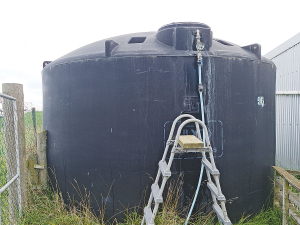Options assessed for Clutha's rural drinking water schemes
An assessment of Clutha District’s rural water supplies is currently underway.
 The Rural Supplies Technical Working Group has made 30 recommendations to the Department of Internal Affairs.
The Rural Supplies Technical Working Group has made 30 recommendations to the Department of Internal Affairs.
The Rural Supplies Technical Working Group (RSTWG) has made 30 recommendations in a recent report to Department of Internal Affairs (DIA), including that the country's 100 or so council-owned rural water supply schemes be transferred to the four new co-governed water entities.
It adds that tens of thousands of privately-owned rural water supply schemes are not included in Three Waters reforms.
RSTWG chair and Clutha District Mayor Bryan Cadogan says rural drinking water schemes are critical to the health and livelihood of rural communities, and each scheme is unique.
“We recognise that rural drinking water schemes often provide water for farming as well as for people to drink.
There are distinct differences between rural and urban water – and it’s not one size fits all.”
Cadogan claims his group has listened carefully to the concerns of rural communities.
“The RSTWG agrees that, in general, council-owned rural drinking water schemes should transfer to the new water service entities,” he says.
“But we also recommend that there should be a pathway for some council-owned rural supplies to revert to ownership by their users. This would apply to schemes that are critical to farming and whose users have the capability and resources to operate them without support from councils or water services entities.”
Meanwhile, in terms of the privately-owned rural drinking water schemes, which are not captured by reform and so do not shift to water service entities, Cadogan says for most it will be several years before they need to register as a supplier with drinking water regulator Taumata Arowai and “demonstrate compliance with it requirements to provide safe drinking water”.
A New Zealand-first native tree study has highlighted the Bioeconomy Science Institute's position as a forestry research leader.
Hemp fibre processor Rubisco is relocating its core processing facility to Ashburton as part of a $20-$30 million expansion to leverage what it says is an accelerating global demand for sustainable and renewable fibres.
Tradition meets some of the latest in technology at the 2026 East Coast Farming Expo.
OPINION: Trade Minister Todd McClay and the trade negotiator in government have presented Kiwis with an amazing gift for 2026 - a long awaited and critical free trade deal with India.
Former Agriculture Minister Nathan Guy says he's excited about his new role as NZ's Special Agricultural Trade Envoy.
A pillar of New Zealand's horticultural industry, Dr Stuart Davis, was farewelled at a well-attended funeral service in Tuakau, South Auckland, on December 18.